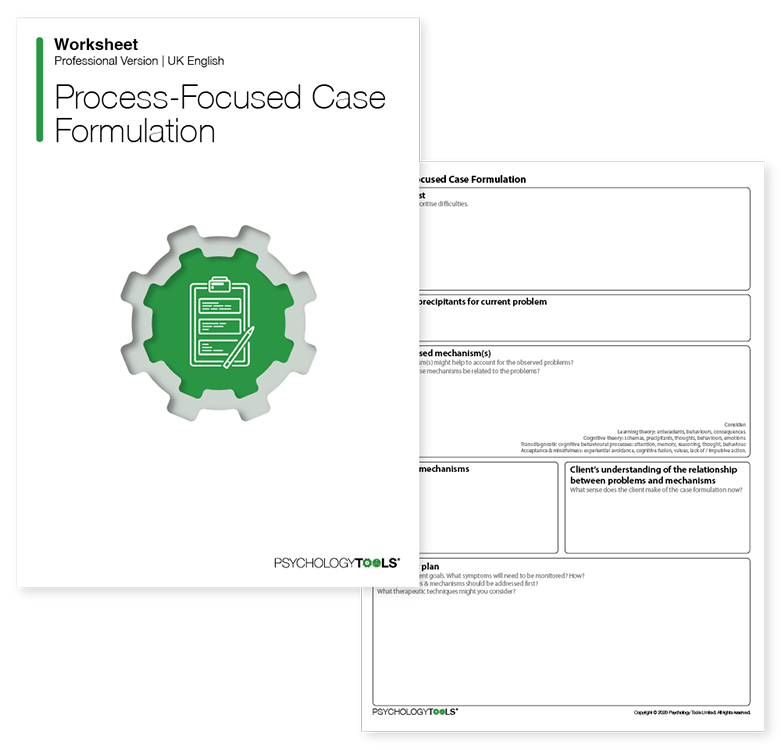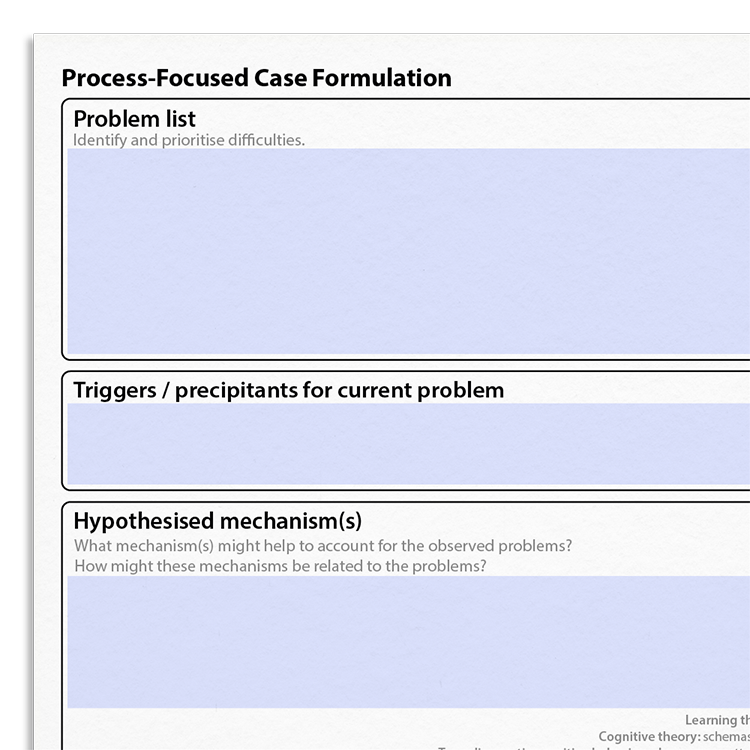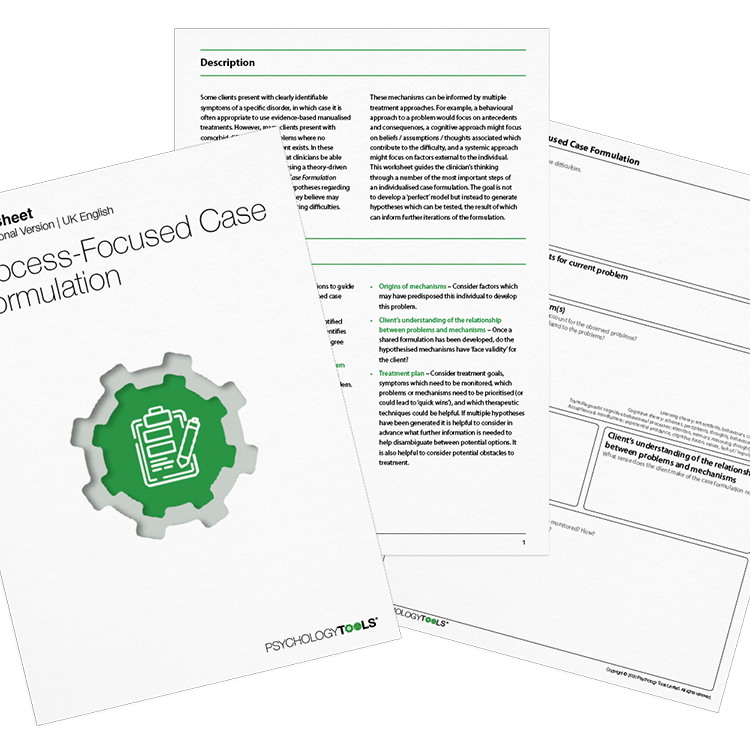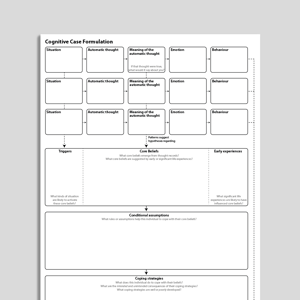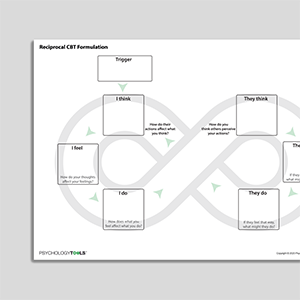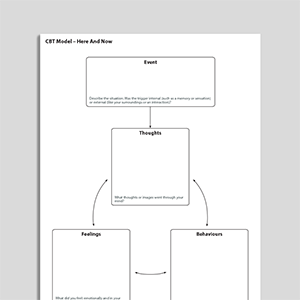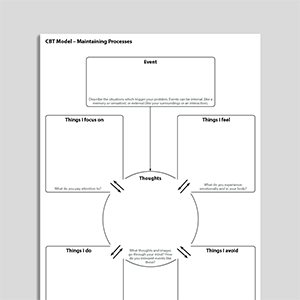Professional version
Offers theory, guidance, and prompts for mental health professionals. Downloads are in Fillable PDF format where appropriate.
Worksheet only (PDF)
A copy of the worksheet in PDF format.
Editable version (PPT)
An editable Microsoft PowerPoint version of the resource.
